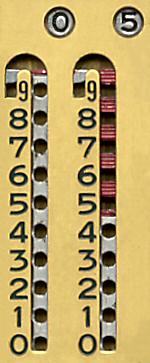The dramatization of documentaries
 I used to enjoy watching documentaries. They gave me a way to visit remote corners of the world, learn how things are constructed, and see the details of a historic event. But not anymore.
I used to enjoy watching documentaries. They gave me a way to visit remote corners of the world, learn how things are constructed, and see the details of a historic event. But not anymore.
What happened? I guess commercial pressure sucked out all real content and replaced it with dramatization and scripted fiction.
This touches on a bigger subject: is reality so boring that no one cares about it anymore? Have we become so desensitized to our experience here on earth that we only respond to larger-than-life stories?
I am sitting at home watching a show about constructing a massive skyscraper, eager to learn something new.
Narrator: "The foreman is now under pressure to finish the pouring of concrete for the next story of the building. Will he make it on time, or will he face penalties? Meanwhile two workers are fighting with each other over who is to pour the next batch."
Miguel: "I did the pouring yesterday, don't be a bitch now. Its your turn Jose."
Narrator: "It's finally time to pour the concrete".
Foreman: "Yea, we will now pour in the concrete into the mold."
Jose: "I'm using this thick hose to pour in the concrete".
Narrator: "Coming up soon: Jose's girlfriend just broke up with him over the phone. How will he be able to pour that concrete? Let's see after these messages."
Commercials: "Bla, bla, bla, bla..."
Narrator: "Update: they are now pouring the concrete, but they might be in trouble. How is Jose holding up?"
Watching a show like this is like having a migraine in slow motion. It is like being fed all calories but no nutrition. It is like being stuck in Goundhog Day and desperately watching your IQ drop. It is all drama and extremely thin on content, just repeated over and over as if they try to brain-wash the viewer.
Sadly, this is what most documentaries are like today. Documentaries used to be produced for people who liked, well, documentaries (duh). Now they are made to please everyone, and on a tight budget. In theory the butch can sit in his sofa with his bitch, and both will enjoy the show. But for someone like me, they have now managed to make these shows unwatchable.
The documentaries are also scripted today. Taking a camera and simply capturing what happens in real life is not as interesting anymore. Instead the public would rather see extreme caricatures of real life. They want made up stories, barely real enough to relate to. This is of course very obvious to most people, but I didn't know to what extent this was done until a friend told me some inside information:
Game of Stones is a Discovery show about gem stone traders that quickly hunt down sources of stones to trade them at good profit. This takes them through jungles and into remote dangerous areas, negotiating with shady people carrying guns, and running away quickly to not get robbed. It sounded like a great potential for a show. I watched the first episode, and my inside friend then explained to me that every single thing in there was scripted. They never went though that part of the jungle, they were not hiding from the military, those particular stones are never found in that region, and the very mine itself was built as a mock-up for the show. All fake, but presented as real. What is the point?
As a contrast, one of the rare examples of a real documentary series is How it's Made. It shows how ordinary items are manufactured in factories. I love this series and always learn a lot from watching it. But no matter how drama-proof this show might be, I'm sure the producers will eventually find a way to ruin it too. "Then the bulbs are transported on a belt, which looks like it might break soon." "Will we be able to explain the manufacturing of ice cubes in five minutes or not? Watch the show and see."
It seems to me that people more than ever celebrate the fake over the real. I guess it is easy to get enchanted by superlatives, but do stories really have to be made up when there is so much that is already fascinating about the world and man's ingenuity?
 To give an example, let me show you the Kingston pocket calculator.
To give an example, let me show you the Kingston pocket calculator.
This device is something that most people have never seen: an example of what we used for calculating before we had computers.
It internally features six up/down sliding parts. See to the right for a machine that has been taken apart. As they slide, their printed digits are shown one by one through an opening in the case. On the case are also printed digits to show where you insert a pen to make the calculations.
You set the machine to the first number of the addition, say 5, by putting a pen in the hole by the printed digit 5, and then pushing down the sliding part to the bottom, and the digit 5 will show in the opening. See magnified picture below.

If you want to add 3 you put the pen in the hole by the 3 and push down again, and the opening will now show 8. Instead, if you want to add 7, the 7 is in the red area, so you now push it upwards instead, and through the candy-cane style loop. This will set the slider to 2 and push down the next slider to 1, resulting in 12.
I cant stop to be amazed by how simple and ingenious this is, and why people wouldn't rather learn about such a thing, instead of favoring uninspiring pointless drama.
Hollywood is in the very business of make believe, and there is nothing wrong with that. But they also trespass on the territory of real life with movies that state they are "based on a true story". These movies typically are so untrue that it becomes an insult to the participants of the real event, and also to the viewers. This has become so problematic that an entire web site was created to dispel all the fiction.
When I watched Rescue Dawn, an action film about a solider shot down in Laos during the Vietnam war, I thought it was a great film. Then I learned that it was based on a true story. And then it turned out it really was made up to a large extent. This instead needlessly tainted my memory of the film. The label "based on a true story" on any movie has now become pointless, or rather something negative, because you know it will certainly not be the true story. So why not present these movies and so called documentaries as the fiction and drama that they really are?
